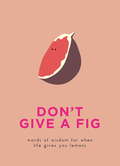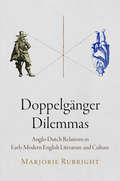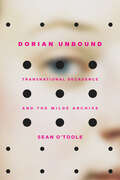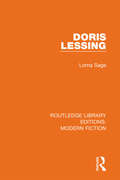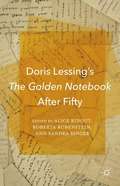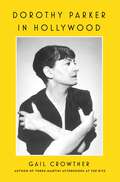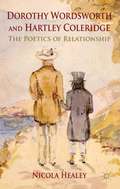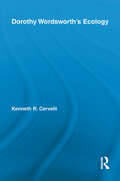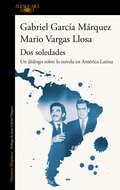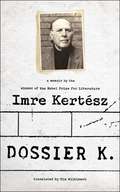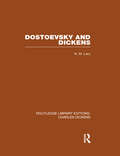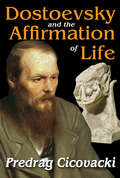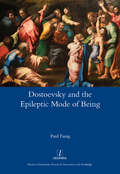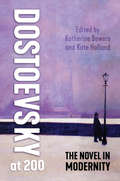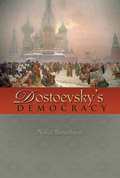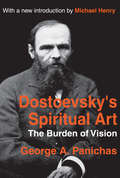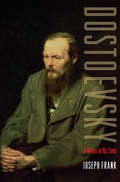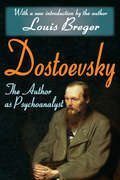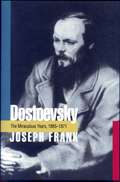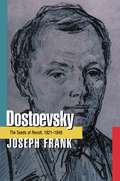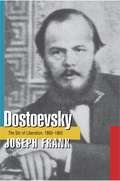- Table View
- List View
Dont Give A Fig: Words of wisdom for when life gives you lemons
by PyramidKnow someone who's as dramatic as a soap okra? Champion their 'shiitake happens' attitude with this little book of upbeat and adorkable fruit puns.#tatersgonnatateAbout the seriesThis cute and colourful series of fruit-pun-filled gift books are the perfect pick-me-ups for you, your friend or your partner in crime. Do you need to avocuddle, or are you grapeful for someone who's a bit of a melon? Then share the clove with these little books: AvoCuddle, WhataMelon, You are my Raisin for Living, Don't Give a Fig, I am Grapeful, You are 24 Carrot Gold.*veg, nuts and seeds are fair game
Don’t Give A Fig: Words of wisdom for when life gives you lemons
by Don’t Give a FigKnow someone who's as dramatic as a soap okra? Champion their 'shiitake happens' attitude with this little book of upbeat and adorkable fruit puns.#tatersgonnatateAbout the seriesThis cute and colourful series of fruit-pun-filled gift books are the perfect pick-me-ups for you, your friend or your partner in crime. Do you need to avocuddle, or are you grapeful for someone who's a bit of a melon? Then share the clove with these little books: AvoCuddle, WhataMelon, You are my Raisin for Living, Don't Give a Fig, I am Grapeful, You are 24 Carrot Gold.*veg, nuts and seeds are fair game
Doppelganger Dilemmas: Anglo-Dutch Relations in Early Modern English Literature and Culture
by Marjorie RubrightThe Dutch were culturally ubiquitous in England during the early modern period and constituted London's largest alien population in the second half of the sixteenth century. While many sought temporary refuge from Spanish oppression in the Low Countries, others became part of a Dutch diaspora, developing their commercial, spiritual, and domestic lives in England. The category "Dutch" catalyzed questions about English self-definition that were engendered less by large-scale cultural distinctions than by uncanny similarities. Doppelgänger Dilemmas uncovers the ways England's real and imagined proximities with the Dutch played a crucial role in the making of English ethnicity.Marjorie Rubright explores the tensions of Anglo-Dutch relations that emerged in the form of puns, double entendres, cognates, homophones, copies, palimpsests, doppelgängers, and other doublings of character and kind. Through readings of London's stage plays and civic pageantry, English and Continental polyglot and bilingual dictionaries and grammars, and travel accounts of Anglo-Dutch rivalries and friendships in the Spice Islands, Rubright reveals how representations of Dutchness played a vital role in shaping Englishness in virtually every aspect of early modern social life. Her innovative book sheds new light on the literary and historical forces of similitude in an era that was so often preoccupied with ethnic and cultural difference.
Dorian Unbound: Transnational Decadence and the Wilde Archive
by Sean O'TooleA bold reimagining of the literary history of Decadence through a close examination of the transnational contexts of Oscar Wilde's classic novel The Picture of Dorian Gray.Building upon a large body of archival and critical work on Oscar Wilde's only novel, Dorian Unbound offers a new account of the importance of transnational contexts in the forging of Wilde's imagination and the wider genealogy of literary Decadence. Sean O'Toole argues that the attention critics have rightly paid to Wilde's backgrounds in Victorian Aestheticism and French Decadence has had the unintended effect of obscuring a much broader network of transnational contexts. Attention to these contexts allows us to reconsider how we read The Picture of Dorian Gray, what we believe we know about Wilde, and how we understand literary Decadence as both a persistent, highly mobile cultural mode and a precursor to global modernism. In developing a transnational framework for reading Dorian Gray, O'Toole recovers a subterranean network of nineteenth-century cultural movements. At the same time, he joins several active and vital conversations about what it might mean to expand the geographical reach of Victorian studies and to trace the globalization of literature over a longer period of time. Dorian Unbound includes chapters on the Irish Gothic, German historical romance, US magic-picture tradition, and experimental English epigrams, as well as a detailed history and a new close reading of the novel, in an effort to understand Wilde's contribution to a more dynamic idea of Decadence than has been previously known. From its rigorous account of the broad archive of texts that Wilde read and the array of cultural movements from which he drew inspiration in writing Dorian Gray to the novel's afterlives and global resonances, O'Toole paints a richer picture of the author and his famously allusive prose. This book makes a compelling case for a comparative reading of the novel in a global context. It will appeal to historians and admirers of Wilde's career as well as to scholars of nineteenth-century literature, queer and narrative theory, Irish studies, and art history.
Doris Lessing (Routledge Library Editions: Modern Fiction #21)
by Lorna SageDoris Lessing was one of the most impressive, prolific and vital of twentieth century writers. Her fiction is obsessed with the workings of cultural change and she radically extended the novel’s scope – most famously and influentially in The Golden Notebook – by questioning the realist tradition she inherited and the wider social beliefs about self, sexuality and authority which that tradition symbolized. This study, originally published in 1983, surveys her epic output from her early, African writings to her later experiments with space fiction. It traces her struggles to decentre imaginative life and to erase and to redraw the boundaries of our mental maps in favour of values on the margins of the official culture.
Doris Lessing�s The Golden Notebook After Fifty
by Roberta Rubenstein Alice Ridout Sandra SingerDoris Lessing's The Golden Notebook, ground-breaking in both narrative form and subject matter when it was first published in 1962, encompasses important political and social developments of the mid-twentieth century, from the politics of apartheid in southern Africa to the early stirrings of the women's liberation movement of the 1960s and 1970s to the Cold War and the dissolution of Communism. The twelve essays collected here, prompted by the novel's golden anniversary, encompass a rangeof approaches from critical analyses to appreciative essays by scholars who knew Lessing personally. More than a half-century of chronological distance has prompted new and stimulating geopolitical, autobiographical, theoretical, and aesthetic readings by established and emerging scholars across several generations and nationalities, who offer up-to-date insights for twenty-first century readers of this influential novel.
Dorothy L. Sayers: A Biography
by James BrabazonFor the first time, letters written by Sayers are published, making this biography unique.
Dorothy Parker in Hollywood
by Gail CrowtherAn expansive and illuminating study of legendary writer Dorothy Parker&’s life and legacy in Hollywood from the author of the &“fascinating&” (Town & Country) Three Martini Afternoons at the Ritz. The glamorous extravagances and devasting lows of her time in Hollywood are revealed as never before in this fresh new biography of Dorothy Parker—from leaving New York City to work on numerous classic screenplays such as the 1937 A Star Is Born to the devastation of alcoholism, a miscarriage, and her husband&’s suicide. Parker&’s involvement with anti-fascist and anti-racist groups, which led to her ultimate blacklisting, and her early work in the civil rights movement that inspired her to leave her entire estate to the NAACP are also explored as never before. Just as she did with her &“deliriously fast-paced and erudite&” (Library Journal) dual biography of Anne Sexton and Sylvia Plath, Gail Crowther brings Parker back to life on the page in all her wit, grit, and brilliance.
Dorothy Wordsworth and Hartley Coleridge
by Nicola HealeyThis book provides a reassessment of the writings of Hartley Coleridge and Dorothy Wordsworth and presents them in a new poetics of relationship, re-evaluating their relationships with William Wordsworth and Samuel Taylor Coleridge to restore a more accurate understanding of Hartley and Dorothy as independent and original writers.
Dorothy Wordsworth's Ecology (Studies in Major Literary Authors)
by Kenneth CervelliDorothy Wordsworth has a unique place in literary studies. Notoriously self-effacing, she assiduously eschewed publication, yet in her lifetime, her journals inspired William to write some of his best-known poems. Memorably depicting daily life in a particular environment (most famously, Grasmere), these journals have proven especially useful for readers wanting a more intimate glimpse of arguably the most important poet of the Romantic period. With the rise of women’s studies in the 1980s, however, came a shift in critical perspective. Scholars such as Margaret Homans and Susan Levin revaluated Dorothy’s work on its own terms, as well as in relation to other female writers of the eighteenth and nineteenth centuries. Part of a larger shift in the academy, feminist-oriented analyses of Dorothy’s writings take their place alongside other critical approaches emerging in the 1980s and into the next decade. One such approach, ecocriticism, closely parallels Dorothy’s changing critical fortunes in the mid-to-late 1980s. Curiously, however, the major ecocritical investigations of the Romantic period all but ignore Dorothy’s work while at the same time emphasizing the relationship between ecocriticism and feminism. The present study situates Dorothy in an ongoing ecocritical dialogue through an analysis of her prose and poetry in relation to the environments that inspired it.
Dos soledades: Un diálogo sobre la novela en América Latina
by Mario Vargas Llosa Gabriel García MárquezLa conversación perdida entre dos Premios Nobel, dos de los máximos exponentes de la literatura universal El origen del boom en las palabras de sus protagonistas En septiembre de 1967, unos jóvenes Gabriel García Márquez y Mario Vargas Llosa se reunieron en Lima para hablar de literatura latinoamericana. El primero había vendido ya miles de ejemplares de Cien años de soledad. El segundo acababa de ganar el Premio Rómulo Gallegos por La casa verde. Hoy ambos son considerados universalmente dos de los máximos exponentes de la literatura en español, pero por aquel entonces eran dos jóvenes que estaban empezando su carrera como novelistas. En Dos soledades se sitúan frente a frente dos escritores, dos genios literarios, dos maneras diferentes de entender la literatura, dos temperamentos en cierto modo contradictorios, dos formas distintas de narrar. Son los tiempos en que el boom se está gestando, en los que todavía no se ha acuñado nombre para lo que hoy conocemos como «realismo mágico». En estas páginas apasionantes, el lector asiste a una conversación sin igual. La edición incorpora textos de Juan Gabriel Vásquez, Luis Rodríguez Pastor, José Miguel Oviedo, Abelardo Oquendo, Abelardo Sánchez León y Ricardo González Vigil, quienes rememoran, la mayoría en calidad de testigos, aquel diálogo; y, además, dos entrevistas al escritor colombiano, una selección fotográfica, y la valoración que hace hoy Vargas Llosa de la vida y obra de García Márquez. La crítica ha dicho: «Un diálogo que [...] se impregnó de la magia narrativa de ambos: nadie advertía el paso del tiempo.»Carmen Naranjo, EFE «Aquí está ese Vargas Llosa: el novelista-crítico, dueño de una conciencia exacerbada de su oficio, siempre con el bisturí en la mano. Al lado, García Márquez hace grandes esfuerzos por defender su imagen de narrador instintivo, casi salvaje, alérgico a la teoría y mal explicador de sí mismo o de sus libros; sabía muy bien para qué servía cada uno de los destornilladores de su caja de herramientas. Y conocía muy bien, como todo gran novelista, el arte de leer.» Juan Gabriel Vásquez «Este libro ayudará a comprender mejor la situación del novelista latinoamericano de hoy, y a enjuiciar los motivos del esplendor que el género ha alcanzado en este continente.»José Miguel Oviedo «El diálogo fusionaba vida y literatura, teoría y práctica, imaginación y realidad, e instruía muchísimo acerca de la novela y de los novelistas.»Abelardo Oquendo «En este libro hay más lecciones valiosas sobre el oficio de novelista que en cualquier facultad de literatura.»Juan Gabriel Vásquez «Un acontecimiento genial, maravilloso, fluido, entretenido y muy importante para todo joven que deseaba vivir en la atmósfera de laliteratura, sea leyéndola o escribiéndola.»Abelardo Sánchez León «Ese dúo mayor del boom de la novela latinoamericana ejecutó un concierto literario como nunca he escuchado antes y después en mi existencia.»Ricardo González Vigil
Dossier K: A Memoir
by Tim Wilkinson Imre KerteszThe first and only memoir from the Nobel Prize-winning author, in the form of an illuminating, often funny, and often combative interview--conducted by the author of himself. Dossier K is Imre Kertész's response to the hasty biographies and profiles that followed his 2002 Nobel Prize, an attempt to set the record straight. But, as befits Kertész, it's a beautifully roundabout way of going straight: Kertész faces and interrogates himself about the issues and events that have long preoccupied him, while also dealing with the questions that really annoy him (such as, "Is your work autobiographical?"). The result is an extraordinary self-portrait, in which Kertész recounts memories of his childhood in Budapest; the years that lead up to the Second World War and his first encounters with anti-Semitism; the incredible forged record of his death in Buchenwald that may in fact have saved his life; his release from the camps and his return to his family; Hungary's Rákosi and Kádár regimes and the terror, hypocrisy, and absurdity they entailed; his thoughts about what other writers have written about the Holocaust; his two marriages; and his long development as a writer. This is a surprising and provocative autobiography that delves into questions about the legacy of the Holocaust, fiction and reality, and what Kertész calls "the wonderful burden of being responsible for yourself.
Dostoevsky and Dickens: Routledge Library Editions: Charles Dickens Volume 9 (Routledge Library Editions: Charles Dickens)
by N M LaryWhat did Dickens mean to Dostoevsky, and what did the Russian writer owe to England’s greatest entertainer? Many of Dickens’ readers, including George Gissing and Edmund Wilson, have recognized that his achievement needs to be compared with Dostoevsky’s, and they have suspected, or assumed an influence. N M Lary’s book shows what the literary influence really or probably was.
Dostoevsky and the Affirmation of Life
by Predrag CicovackiDostoevsky's philosophy of life is unfolded in this searching analysis of his five greatest works: Notes from the Underground, Crime and Punishment, The Idiot, The Possessed, and The Brothers Karamazov. Predrag Cicovacki deals with a fundamental issue in Dostoevsky's opus neglected by all of his commentators: How can we affirm life and preserve a healthy optimism in the face of an increasingly troublesome reality? This work displays the vital significance of Dostoevsky's philosophy for understanding the human condition in the twenty-first century.The main task of this insightful effort is to reconstruct and examine Dostoevsky's "aesthetically" motivated affirmation of life, based on cycles of transgression and restoration. If life has no meaning, as his central figures claim, it is absurd to affirm life and pointless to live. Since Dostoevsky's doubts concerning the meaning of life resonate so deeply in our own age of pessimism and relativism, the central question of this book, whether Dostoevsky can overcome the skepticism of his most brilliant creation, is innately relevant.This volume includes a thorough literary analysis of Dostoevsky's texts, yet even those who have not read all of these novels will find Cicovacki's analysis interesting and enthralling. The reader will easily extrapolate Cicovacki's own philosophical interpretation of Dostoevsky's literary heritage.
Dostoevsky and the Epileptic Mode of Being
by Paul FungFor Fyodor Dostoevsky (1821-81), who lived with epileptic seizures for more than thirty years, illness is an ineradicable part of existence. Epilepsy in his writings denotes both a set of physical symptoms and a state of survival in which the protagonists incessantly try to articulate, theorize, or master what is ungraspable in their everyday experience. Their attempts to deal with what they cannot control or comprehend results in disappointment, or what Dostoevsky called a mystical terror. Dostoevsky's heroes are unable fully to understand this state, and their existence becomes 'epileptic' in so far as self-knowledge and self-coincidence are never achieved. Fung explores new critical pathways by reexamining five of Dostoevsky's post-Siberian novels. Drawing on insights from writers including Benjamin, Blanchot, Freud, Lacan and Nietzsche, the book takes epilepsy as a trope for discussing the unspeakable moments in the texts, and is intended for students and scholars who are interested in the subject of modernity, critique of the visual, and dialogues between philosophy and literature. Paul Fung is Assistant Professor in English at Hang Seng Management College, Hong Kong.
Dostoevsky at 200: The Novel in Modernity
by Katherine Bowers and Kate HollandMarking the bicentenary of Dostoevsky’s birth, Dostoevsky at 200: The Novel in Modernity takes the writer’s art – specifically the tension between experience and formal representation – as its central theme. While many critical approaches to Dostoevsky’s works are concerned with spiritual and philosophical dilemmas, this volume focuses instead on questions of design and narrative to explore Dostoevsky and the novel from a multitude of perspectives. Contributors situate Dostoevsky’s formal choices of narrative, plot, genre, characterization, and the novel itself within modernity and consider how the experience of modernity led to Dostoevsky’s particular engagement with form. Conceived as a forum for younger scholars working in new directions in Dostoevsky scholarship, this volume asks how narrative and genre shape Dostoevsky’s works, as well as how they influence the way modernity is represented. Of interest not only to readers and scholars of Russian literature but also to those curious about the genre of the novel more broadly, Dostoevsky at 200 is pathbreaking in its approach to the question of Dostoevsky’s contribution to the novel as a form.
Dostoevsky in Context
by Martinsen, Deborah A. and Maiorova, Olga Deborah A. Martinsen Olga MaiorovaThis volume explores the Russia where the great writer, Fyodor Dostoevsky (1821–1881), was born and lived. It focuses not only on the Russia depicted in Dostoevsky's works, but also on the Russian life that he and his contemporaries experienced: on social practices and historical developments, political and cultural institutions, religious beliefs, ideological trends, artistic conventions and literary genres. Chapters by leading scholars illuminate this broad context, offer insights into Dostoevsky's reflections on his age, and examine the expression of those reflections in his writing. Each chapter investigates a specific context and suggests how we might understand Dostoevsky in relation to it. Since Russia took so much from Western Europe throughout the imperial period, the volume also locates the Russian experience within the context of Western thought and practices, thereby offering a multidimensional view of the unfolding drama of Russia versus the West in the nineteenth century.
Dostoevsky's Democracy
by Nancy RuttenburgDostoevsky's Democracy offers a major reinterpretation of the life and work of the great Russian writer by closely reexamining the crucial transitional period between the early works of the 1840s and the important novels of the 1860s. Sentenced to death in 1849 for utopian socialist political activity, the 28-year-old Dostoevsky was subjected to a mock execution and then exiled to Siberia for a decade, including four years in a forced labor camp, where he experienced a crisis of belief. It has been influentially argued that the result of this crisis was a conversion to Russian Orthodoxy and reactionary politics. But Dostoevsky's Democracy challenges this view through a close investigation of Dostoevsky's Siberian decade and its most important work, the autobiographical novel Notes from the House of the Dead (1861). Nancy Ruttenburg argues that Dostoevsky's crisis was set off by his encounter with common Russians in the labor camp, an experience that led to an intense artistic meditation on what he would call Russian "democratism." By tracing the effects of this crisis, Dostoevsky's Democracy presents a new understanding of Dostoevsky's aesthetic and political development and his role in shaping Russian modernity itself, especially in relation to the preeminent political event of his time, peasant emancipation.
Dostoevsky's Spiritual Art: The Burden of Vision
by George PanichasFyodor Dostoevsky's highest and most permanent achievement as a novelist lies in his exploration of man's religious complex, his world and his fate. His primary vision is to be found in his last five novels: Crime and Punishment, The Idiot, The Devils, A Raw Youth, and The Brothers Karamazov. This volume culminates twenty years of studying, teaching, and writing on Dostoevsky. Here George A. Panichas critically analyzes the religious themes and meanings of the author's major works. Focusing on the pervasive spiritual consciousness at play, Panichas views Dostoevsky not as a religious doctrinaire, but as a visionary whose five great novels constitute a sequential meditation on man's human and superhuman destiny.
Dostoevsky: A Writer in His Time
by Joseph FrankA magnificent one-volume abridgement of one of the greatest literary biographies of our timeJoseph Frank's award-winning, five-volume Dostoevsky is widely recognized as the best biography of the writer in any language—and one of the greatest literary biographies of the past half-century. Now Frank's monumental, 2,500-page work has been skillfully abridged and condensed in this single, highly readable volume with a new preface by the author. Carefully preserving the original work's acclaimed narrative style and combination of biography, intellectual history, and literary criticism, Dostoevsky: A Writer in His Time illuminates the writer's works—from his first novel Poor Folk to Crime and Punishment and The Brothers Karamazov—by setting them in their personal, historical, and above all ideological context. More than a biography in the usual sense, this is a cultural history of nineteenth-century Russia, providing both a rich picture of the world in which Dostoevsky lived and a major reinterpretation of his life and work.
Dostoevsky: The Author as Psychoanalyst
by George SantayanaAndre Gide once said that Feodor Dostoevsky "lost himself in the characters of his books, and, for this reason, it is in them that he can be found again." In "Dostoevsky: The Author as Psychoanalyst", Louis Breger approaches Dostoevsky psychoanalytically, not as a "patient" to be analyzed, but as a fellow psychoanalyst, someone whose life and fiction are intertwined in the process of literary self-exploration.Raskolnikov's dream of the suffering horse in "Crime and Punishment" has become one of the best known in all literature, its rich imagery expressing meaning on many levels. Using this as a starting point, Breger goes on to offer a detailed analysis of the novel, situating it at the pivotal point in Dostoevsky's life between the death of his first wife and his second marriage. Using insights from his psychological training, Breger also explores other works by Dostoevsky, among them his early novel, "The Double", which Breger relates to the nervous breakdown that Dostoevsky suffered in his twenties, as well as "Notes from Underground", "The Possessed", "The Idiot", "The Brothers Karamazov", and so forth. Additionally, details from Dostoevsky's own life - his compulsive gambling, his epilepsy, his philosophical, political, religious, and mystical beliefs, and the interpretations of them found in existing biographies - are analyzed in detail.
Dostoevsky: The Miraculous Years, 1865-1871
by Joseph FrankThis volume, the fourth of five planned in Joseph Frank's widely acclaimed biography of Dostoevsky, covers the six most remarkably productive years in the novelist's entire career. It was in this short span of time that Dostoevsky produced three of his greatest novels--Crime and Punishment, The Idiot, and The Devils--and two of his best novellas, The Gambler and The Eternal Husband. All these masterpieces were written in the midst of harrowing practical and economic circumstances, as Dostoevsky moved from place to place, frequently giving way to his passion for roulette. Having remarried and fled from Russia to escape importuning creditors and grasping dependents, he could not return for fear of being thrown into debtor's prison. He and his young bride, who twice made him a father, lived obscurely and penuriously in Switzerland, Germany, and Italy, as he toiled away at his writing, their only source of income. All the while, he worried that his recurrent epileptic attacks were impairing his literary capacities. His enforced exile intensified not only his love for his native land but also his abhorrence of the doctrines of Russian Nihilism--which he saw as an alien European importation infecting the Russian psyche. Two novels of this period were thus an attempt to conjure this looming spectre of moral-social disintegration, while The Idiot offered an image of Dostoevsky's conception of the Russian Christian ideal that he hoped would take its place.
Dostoevsky: The Seeds of Revolt, 1821-1849
by Joseph FrankThe term "biography" seems insufficiently capacious to describe the singular achievement of Joseph Frank's five-volume study of the life of the great Russian novelist Fyodor Dostoevsky. One critic, writing upon the publication of the final volume, casually tagged the series as the ultimate work on Dostoevsky "in any language, and quite possibly forever." Frank himself had not originally intended to undertake such a massive work. The endeavor began in the early 1960s as an exploration of Dostoevsky's fiction, but it later became apparent to Frank that a deeper appreciation of the fiction would require a more ambitious engagement with the writer's life, directly caught up as Dostoevsky was with the cultural and political movements of mid- and late-nineteenth-century Russia. Already in his forties, Frank undertook to learn Russian and embarked on what would become a five-volume work comprising more than 2,500 pages. The result is an intellectual history of nineteenth-century Russia, with Dostoevsky's mind as a refracting prism.The volumes have won numerous prizes, among them the National Book Critics Circle Award for Biography, the Christian Gauss Award of Phi Beta Kappa, the Los Angeles Times Book Prize, and the James Russell Lowell Prize of the Modern Language Association.
Dostoevsky: The Stir of Liberation, 1860-1865
by Joseph FrankThe book description for the previously published "Dostoevsky: The Stir of Liberation, 1860-1865" is not yet available.
